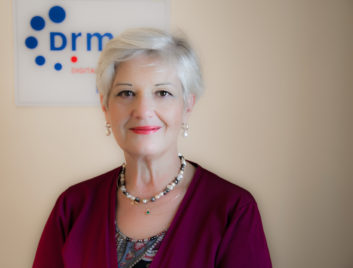The author is chairman of Digital Radio Mondiale.
What is 5G? Is it a bird or a plane or yet another good topic for myriads of conferences?
It seems to me, as a “laywoman,” that 5G is an exciting new wireless communication project. It is an improvement on 4G that hopefully will revolutionize our lives by optimizing many of our daily activities, including access to fast internet and video.

5G began as a technology for mobile network operators to deploy. In principle it should ensure faster speeds — great for video then — more volume of data transported with very little delay. Since 5G, when compared to 4G, allows for better, faster, cheaper and more reliable data distribution, it could also optimize other activities in addition to telecommunications. In fact, the new platform may have wide applications in the industry (e.g. control and move equipment in a factory), as nowadays data transport is the currency of everyday life and logistics. Software will program 5G for a lot of applications of which broadcasting will be just one slice.
5G started as a technology developed by mobile operators but it is highly unlikely that the telecom companies will be able alone to roll it out as “a network for everything” at profit. So, there is already talk of private 5G networks and also of repurposing existing terrestrial broadcast networks or using satellites or a combination of all these.

It is clear that 5G is still a nebulous concept, which is being worked on technically at the moment, with standardization at an advanced stage. 5G has a big chance to become a truly global standard, widely accepted and thus delivering economies of scale.
But, alas, the technology will not be the answer to all our digital prayers. And there are many other “issues.” For example, 5G is a very small-cell application i.e. it works well and fast at short distances. So, it will require even more transmitters than FM, DAB+ or the efficient DRM. More spectrum, even below 470 MHz or just as low as Band III, will have to be made available, if we want connectivity for a lot of devices simultaneously.
5G, at least in the beginning, will need a new and very dense (read expensive) infrastructure. This month, authorities halted a pilot project to provide high-speed 5G wireless internet in Brussels due to fear of radiation. Belgian Environment Minister, Celine Fremault, wrote in the Brussels Times on April 1 that the people there “are not guinea pigs whose health I can sell at a profit.”
In addition, the United Kingdom government recently announced that it has ditched part of its £35 million trial of 5G-based mobile and fixed line fiber technology on a rail route between Manchester and York in northern England. The reasons given were mainly complexity and costs.
Even if we will eventually overcome these hiccups, new receivers will have to be manufactured and sold. A solid business model will need to be defined, too.
5G will progress and offer new opportunities in both content creation and distribution. Some specialists estimate that 5G will become reality in 10 years. According to Darko Ratkay of the, EBU, it would be premature to consider 5G as a replacement of technologies and infrastructure in use (tech-I, tech.ebu.ch/March 2019).
Those who still hesitate to go the digital radio way, invoking the mirage of the 5G, are simply using it as an excuse for their lack of determination and courage. After all, 5G is still in its infancy; it will be great for internet and video but will not deliver the large coverage that digital DRM can do in AM, for example, or what DRM, DAB+ and HD can do for local coverage.
And we have not even touched the question of audio in cars. But neither can 5G and its potential be ignored, as the industry worldwide and the policy makers are behind it, considering it to be the future.
This year 5G broadcasting tests are taking place in Germany and the U.K. The BBC is pioneering live radio broadcasts over 5G mobile networks in the first public trial of its kind in the far away Scottish island of Orkney where 4G/5G mobiles will be used to deliver BBC content.
So, is digital terrestrial audio broadcasting at the moment just a stepping stone to the predicted benefits of 5G? The answer has to be an emphatic no.
Digital radio (DRM and other digital standards) can already distribute rich multimedia content to many, at low energy costs and with clear spectrum efficiency.
Radio has been recently declared the most trustworthy medium in both Europe and the U.S. Duncan Stewart, director of Research with Deloitte’s Technology, Media and Telecommunications, boldly predicts that 18- to 34-year-old Americans will spend more time listening to radio than watching TV by 2025.
And this might be happening already in the Nordic countries (except Norway) “as radio listening minutes for younger demographics was already higher than linear TV viewing minutes in Sweden and Finland, and was going to crossover in Denmark in 2019.”
Radio is in a good place just now and in the words of Bob Pittman, CEO of iHeart Media,” is hot for the first time in decades.” Radio does not need to be shy and apologetic in the new media landscape, or fear the advent of 5G. Conversation, discussion and discovery are central to this medium that is resilient and has shown how it can reinvent itself digitally.
If you are in a part of the world where 2G and 3G are the norm, where electricity might be sporadic and data plans unaffordable, you can be connected and linked through radio.
Broadcasters, regulators and the industry need to watch, experiment and develop 5G but, before anything else, digital radio has to be available everywhere in good quality and for free.
[Read: Managing Shortwave Broadcasts From Ascension Island]
If you start experimenting and developing digital content and also renew your analog infrastructure by upgrading to digital with DRM, for example, you might be using the good place audio is in just now, while video is planning on the huge boost it will receive with 5G.
By becoming digital and putting your faith in radio, you might be even better prepared to benefit from 5G, too, once it is clearly defined and available.












